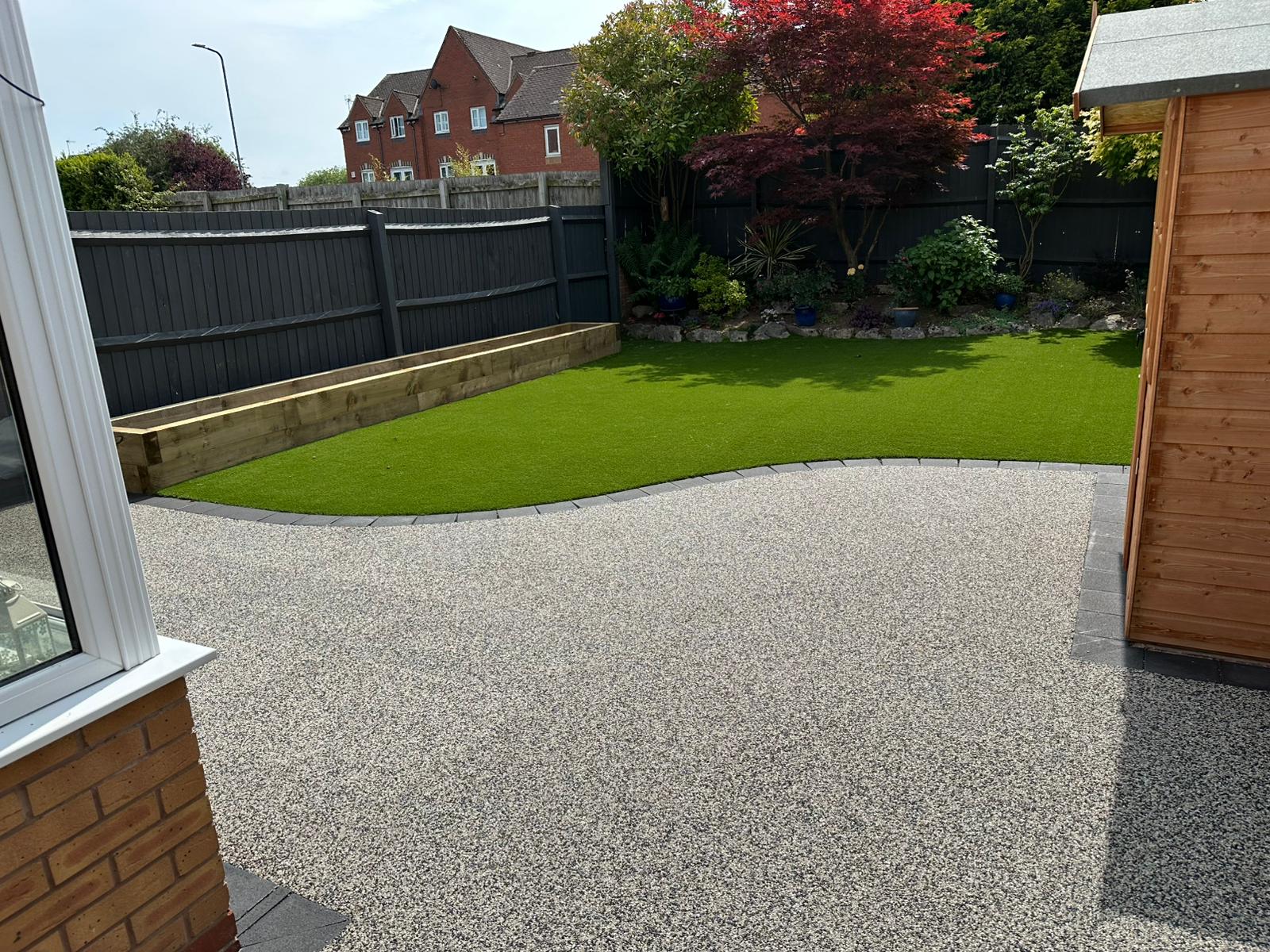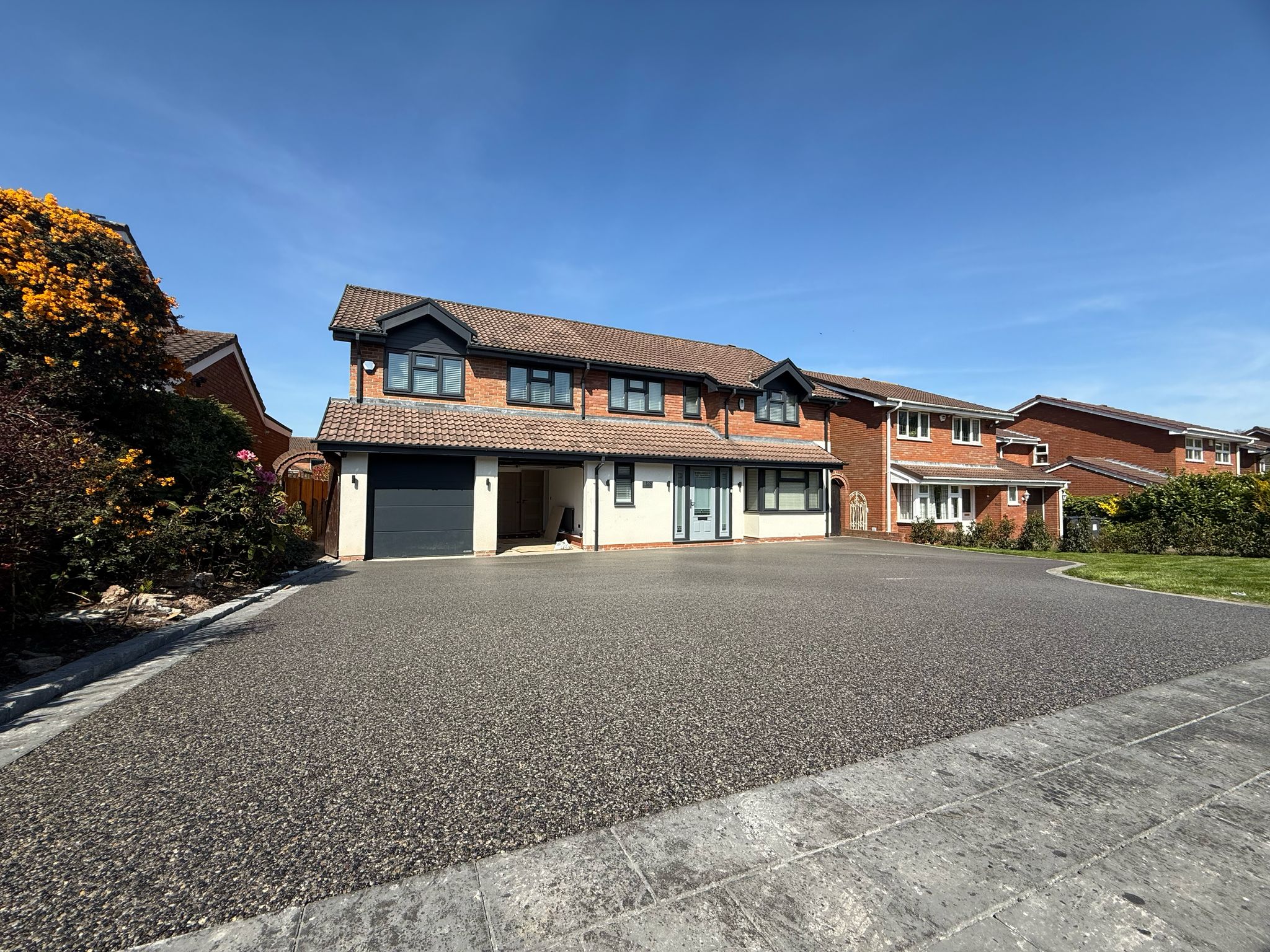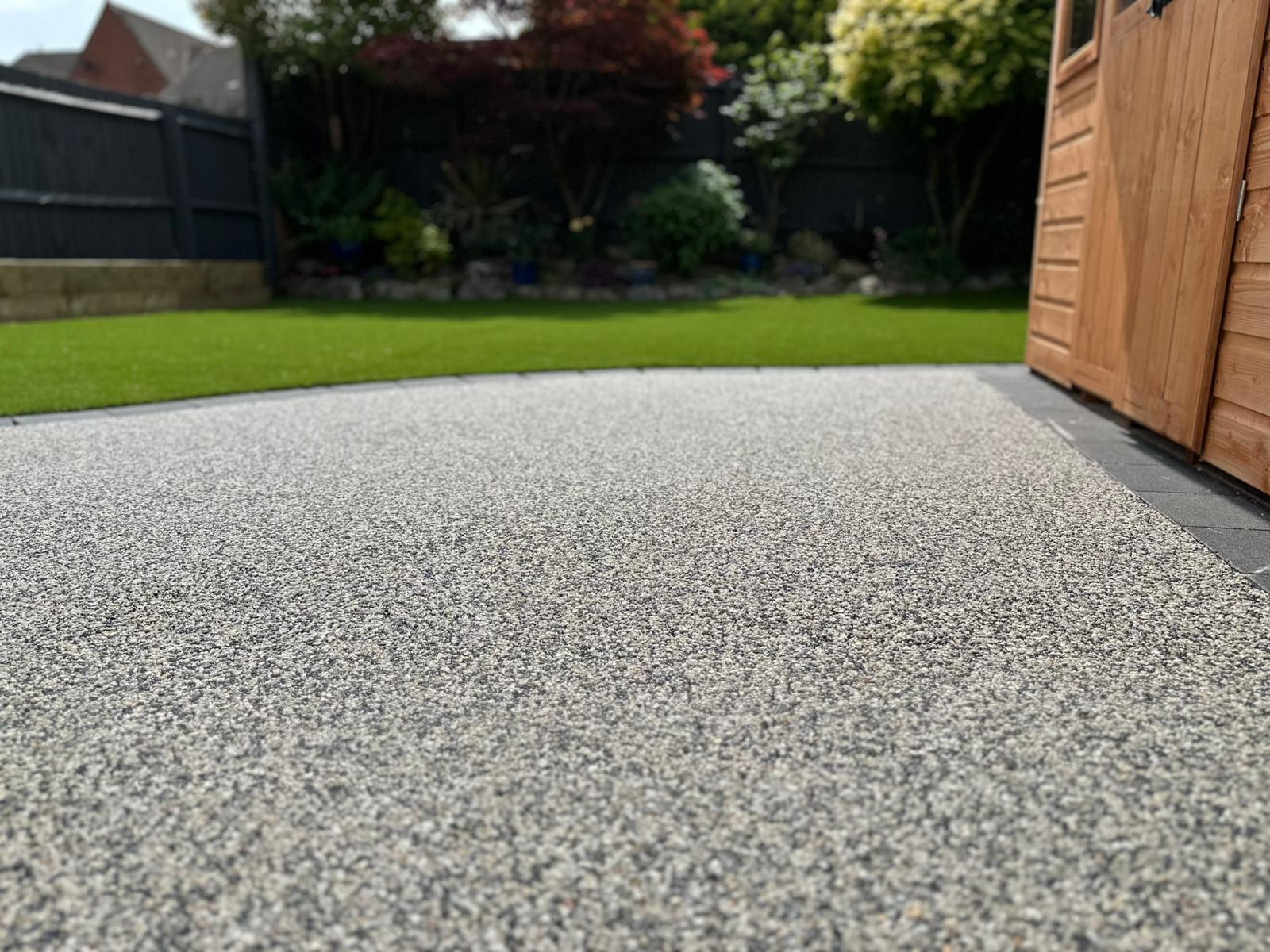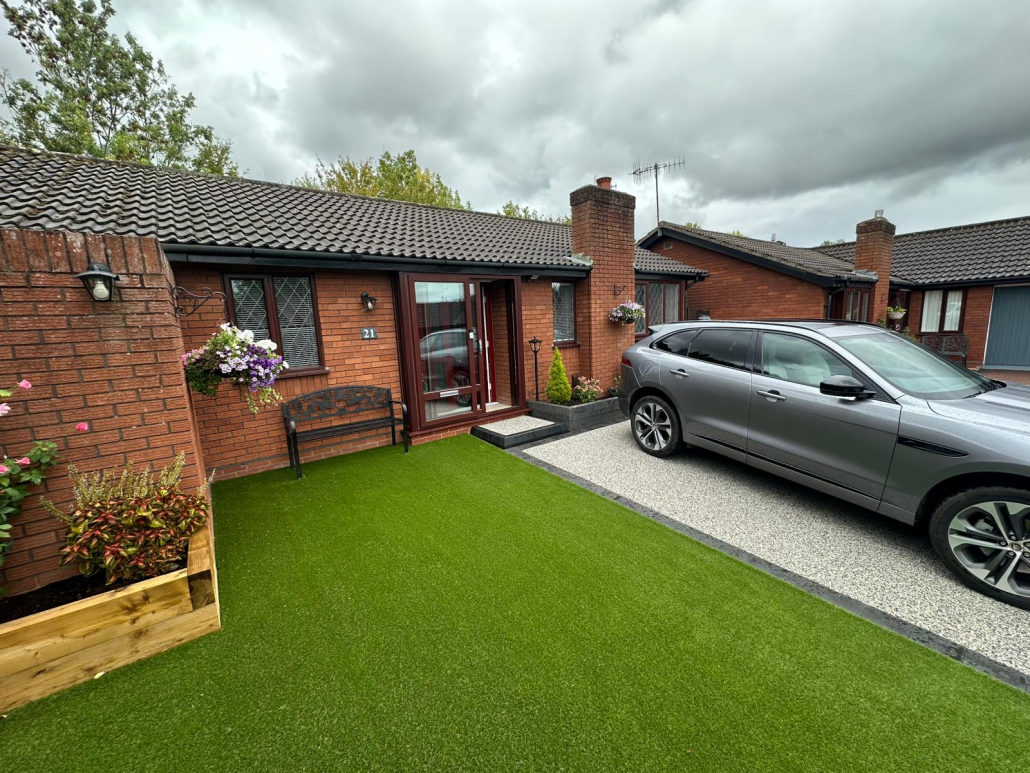Resin Bound vs Resin Bonded: What’s the Difference and Which Is Best for Your West Midlands Driveway?
Thinking about a resin driveway but not sure whether to choose resin bound or resin bonded? You’re not alone. These two surfaces sound similar, but they behave very differently once installed. If you live in Birmingham, Wolverhampton, Dudley, Solihull, Walsall, Coventry or anywhere across the West Midlands, picking the right system can mean better performance, less maintenance and a driveway that looks smart for years.
Below we break down resin bound vs resin bonded in plain English – covering looks, durability, drainage, maintenance, cost and regulations, so you can decide what’s best for your home. We’ll also share when each option makes sense and how Consumer Resin installs both to a professional standard.
What is Resin Bound?
- Method: Stone aggregates are mixed thoroughly with a UV-stable resin, then trowel-applied to form a smooth, seamless surface.
- Finish: Flat, contemporary, high-end appearance with visible, evenly coated stones.
- Structure: The mix is fully bound, creating tiny voids between stones.
- Thickness: Typically 15–18mm for driveways (can vary based on aggregate size and base).
- Permeability: Permeable/SUDS-friendly when installed on a suitable base (e.g., open-graded asphalt or a permeable sub-base).
Key Differences at a Glance
- Texture: Resin bound is smooth and seamless; resin bonded is coarse and gritty underfoot.
- Drainage: Resin bound can be permeable (SUDS-friendly) with the right base; resin bonded is generally not permeable.
- Durability: Resin bound offers strong long-term performance when installed correctly on a stable base; resin bonded can be durable but may lose some stones over time, especially under turning forces.
- Maintenance: Resin bound is low maintenance (sweep and occasional jet wash); resin bonded may need more frequent sweeping and occasional top-ups.
- Aesthetics: Resin bound is premium and contemporary; resin bonded delivers a classic, gravel-like look without the migration of loose gravel.
Base Preparation: The Hidden Hero Your driveway’s long-term performance depends more on the base than the top layer.
- Resin bound works best over a solid, stable, and permeable base (e.g., open-graded asphalt or well-constructed MOT Type 3 with appropriate geotextiles). This maintains permeability and prevents movement.
- Resin bonded can be applied to sound, non-permeable bases (e.g., existing concrete or asphalt) if they’re in good condition. Any cracks or movement joints must be addressed to reduce reflective cracking.
If your existing base is uneven, cracking, or holds water, Consumer Resin will recommend the right remediation steps before installing any resin surface.
Maintenance and Cleaning
- Resin bound: Low maintenance—regular sweeping to remove organic matter and occasional light jet washing is usually sufficient. Avoid harsh chemicals and use a medium fan on pressure washers.
- Resin bonded: Needs regular sweeping to manage any loose aggregate; occasional patching/top-up may be required over time, especially where vehicles turn.
Longevity and Performance
- Resin bound: With professional installation, quality UV-stable resin, and a suitable base, a resin bound driveway delivers long-lasting performance and consistent appearance for many years.
- Resin bonded: Durable for light to moderate traffic, but more prone to aggregate loss under tight turning or heavy vehicle use. Best suited to paths, courtyards, or driveways with straightforward vehicle movements.
What is Resin Bonded?
- Method: A resin layer is applied to the base first, then loose aggregate is broadcast (scattered) on top and bonded where it touches the resin.
- Finish: Textured, grippy, more traditional look—think heritage/gravel effect.
- Structure: Not all stones are encapsulated; the top can shed loose stones over time.
- Thickness: Typically 3–6mm stone over a resin film.
- Permeability: Effectively non-permeable; water runs off the surface.
Drainage and SUDS: Why It Matters in the West Midlands The UK’s Sustainable Drainage Systems (SUDS) guidance encourages permeable surfaces to reduce local flooding and pressure on sewers. For many West Midlands homeowners:
- Resin bound systems are often preferred because, when laid over a permeable sub-base (and using suitable aggregates), the surface allows rainwater to drain through. This can help you avoid planning issues and minimise puddling.
- Resin bonded systems are typically non-permeable, meaning surface water must run off to existing drains or landscaped areas. Where drainage is poor—or where planning constraints favour permeable surfaces—resin bonded may be less suitable.
Always check local requirements, particularly if you’re expanding an impermeable area or live in a location prone to heavy rainfall.
Slip Resistance and Safety
- Resin bound: Naturally slip resistant when the correct aggregate blend is used. Additional anti-slip additives can be incorporated for slopes or high-traffic zones.
- Resin bonded: Very high initial grip due to the textured finish—often favoured for steep drives, steps, or areas where extra traction is desirable.
Aesthetics and Kerb Appeal
- Resin bound offers a sleek, seamless finish with a wide range of colours—from warm natural stones to modern greys. It pairs brilliantly with brickwork and contemporary façades common across the West Midlands.
- Resin bonded gives a traditional, gravel-like character that complements period properties and rural settings. It’s ideal where you want the gravel look without the mess.
Cost Considerations in the West Midlands. Prices vary by area size, base condition, aggregate choice, and access:
- Resin bound: Typically higher initial cost due to greater material volume, base requirements and installation time. You’re paying for permeability, a premium finish and longevity.
- Resin bonded: Often more budget-friendly upfront as it uses less resin and thinner application. However, factor in potential maintenance or top-ups down the line.
Why Choose Consumer Resin
- Local expertise: Experienced across the West Midlands, familiar with local ground and drainage conditions.
- Proper base works: Advice and preparation that safeguard longevity and performance.
- Quality materials: UV-stable resin and carefully selected aggregates for colour stability and durability.
- Professional finish: Clean edges, neat thresholds, and attention to detail that lifts kerb appeal.
Get Your Personalised Resin Driveway Quote
If you’d like a no-obligation survey, Consumer Resin can help you choose the best system for your specific driveway, budget and drainage needs.
Book your free driveway survey now!
Contact Consumer Resin or call 0121 716 0002.












